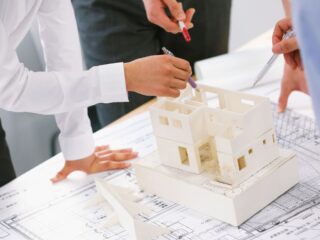
Choosing the right builder can be a daunting task. It’s a decision that not only shapes your dream home but also affects your peace of mind for years to come. This article will provide insightful tips and key questions to ask, guiding you through the process.
Whether you’re contemplating a new home or a renovation, the right builder can make all the difference. Armed with the right information and asking the right questions, you’ll be well on your way to making a decision you can be confident about. Stay tuned as we delve into this critical topic.
Understanding the Contract and Pricing
Assessing Awards and Certifications
Finally, consider any awards and certifications the builder may have received. These can be a good indication of their expertise and commitment to quality. Look for certifications from industry organizations, such as the National Association of Home Builders, as well as awards for excellence in design or construction. In a country like a Australia, well-known home builders, like Redink Homes in Western Australia, serve as a prime example of well qualified and certified builders to keep an eye out for. However, keep in mind that while awards and certifications can be impressive, they should not be the sole factor in your decision-making process.
Analyzing the Contract Details
Before signing a contract, it’s important to carefully read and analyze the details. Look for specifics on the scope of work, materials to be used, timelines, and warranties. Make sure the contract includes a clear description of the project, including any changes or modifications that may be necessary. If you have any questions or concerns, don’t hesitate to ask the builder for clarification.
Clarifying Payment Schedules
Payment schedules can vary depending on the builder and the project. Make sure you understand how and when payments will be made, as well as any penalties or fees for late payments. It’s also important to clarify what happens if the project is delayed or if there are any unexpected costs.
Identifying Hidden Costs
Hidden costs can quickly add up and blow your budget. Make sure you understand all of the costs associated with the project, including permits, taxes, and fees. Ask the builder to provide a detailed breakdown of all costs, including any potential extras or add-ons. This will help you avoid surprises and ensure that you stay within your budget.
By understanding the contract and pricing details, you can make an informed decision when choosing a builder. Don’t be afraid to ask questions and clarify any concerns you may have. With the right information, you can ensure that your project is completed on time, on budget, and to your satisfaction.
Key Factors to Consider When Choosing a Builder
Selecting the perfect builder entails more than just examining their portfolios. It’s a decision that hinges on several pivotal factors.
Experience and Expertise
When it comes to home construction, experience carries significant weight. An experienced builder brings years of accumulated knowledge and technical skills to the table. They’ve encountered a plethora of scenarios, ranging from complex architectural designs to stringent building codes, and can handle unanticipated hurdles with ease. For instance, a builder who’s worked on a variety of restoration projects demonstrates adaptability and versatility. In addition, their vast understanding of different materials used in construction translates into better advice and alternatives for your home’s design.
Expertise, on the other hand, is a product of their specific skill set. They’ve honed certain abilities and adopted best practices for certain types of projects. For instance, a builder specializing in sustainable construction practices would be ideal for homeowners looking for an energy-efficient design.
Licenses, Certifications, and Insurance
Verifying a builder’s licensure is non-negotiable. It’s an assurance that the builder adheres to local industry regulations and industry standards. Don’t hesitate to verify their license number with the relevant local authorities.
Certifications provide another layer of assurance. They’re proof that the builder has undertaken and passed professional courses. For instance, a certification in green building stands as a testament to their knowledge in constructing eco-friendly homes.
Insurance plays a critical role as well. It safeguards you against potential damages or injuries that could occur during construction. Ensure the builder has a valid insurance policy, including worker’s compensation and liability coverage.
Previous Projects and References
Evaluating a builder’s previous projects provides insights into their quality of work. You can assess their attention to detail, innovation, and craftsmanship. Don’t focus solely on aesthetics—consider the functionality and durability of their creations as well.
References, too, are equally valuable. They offer first-hand experiences of past clients. Aim to gather tidbits about the builder’s professionalism, communication, timeliness, and problem-solving abilities. Remember, a reputable builder won’t hesitate to provide a list of references on request.
Questions to Ask Before Hiring a Builder
Entering the phase of hiring a builder allows potential homeowners to delve deeper into the specifics of the construction process. Identifying key questions to ask not only reinforces an informed choice but also builds a foundation for productive communication.
About Their Process and Timelines
Understand a prospective builder’s process thoroughly, if timelines are drawn efficiently, and how they manage potential setbacks.
Example:
- Propose a question about their standard process, such as, “Can you succinctly describe your general construction process?”
- Follow-up by exploring their timetable management. An example query might be, “What are the estimated timelines for this project, and how flexible are they with unexpected events?”
Discussion on Materials and Suppliers
Inquire about the suppliers and the quality of materials they choose. Vitality and longevity of the project correlates to material strength.
Example:
- Begin by asking about their preferred suppliers, for instance, “Which suppliers do you typically source construction materials from?”
- Further the conversation by questioning about the quality assurance: “What measures do you take to ensure the quality of the materials used?”
Handling of Permits and Legal Requirements
Ensure the builder is well-versed with the legal procedures relating to construction and if they possess all the necessary permits to avoid legal snarls.
Example:
- Ask for details on their legal understanding, such as, “Are you familiar with all the zoning rules and building codes applicable to this project?”
- Probe further to know who handles the permitting procedure. A good question might be, “Do you handle obtaining permits, or is that responsibility on me?”
These pointed queries guide the selection process, ensuring the builder chosen is a competent and professional match for your project’s requirements.
Red Flags to Watch Out for
Proceeding further, it’s crucial to recognize potential issues early on. Let’s discuss some red flags that might indicate an unworthy builder.
Inconsistent Communication
Reliable communication comprises the backbone of any successful project, home construction being no exception. If a builder does not return calls or emails promptly, it may infringe on the ability to maintain project timelines and quality. Late replies might also signal a lack of professionalism and could result in misunderstandings that impact final outcomes. Spot such issues early to mitigate potential disruptions.
For example, the builder may be neglectful in sharing crucial updates about material availability, supplier issues, or construction delays. They might also fail to request necessary confirmations about design specifications or changes. Such actions, or lack thereof, can create significant problems later in the construction process.
Negative Feedback
Online feedbacks and testimonials provide a window into past customer experiences and subsequently, a builder’s reputation. A pattern of negative feedbacks might indicate poor past performance. Occasionally, one might encounter bad feedbacks for even the most competent builders. However, consistently poor feedback identifies a problem that requires attention.
For instance, customers might complain about unfinished projects, substandard material use, disregard for project timelines, hidden charges, or non-professional behavior. When such issues appear repeatedly in feedbacks , they are likely representative of a builder’s operations. High levels of customer dissatisfaction should warn potential customers about the builder’s reliability.








